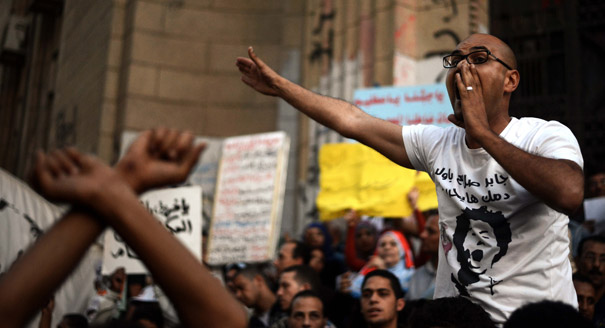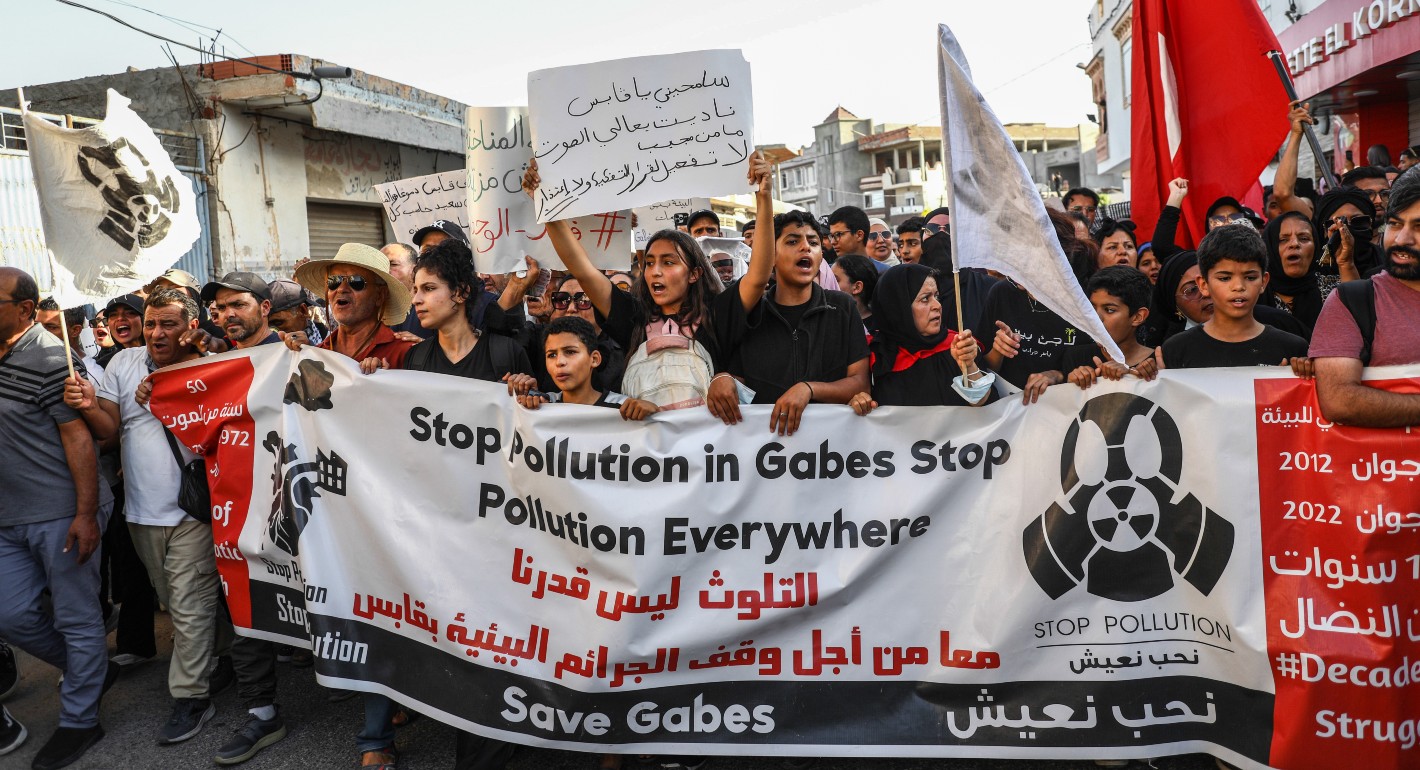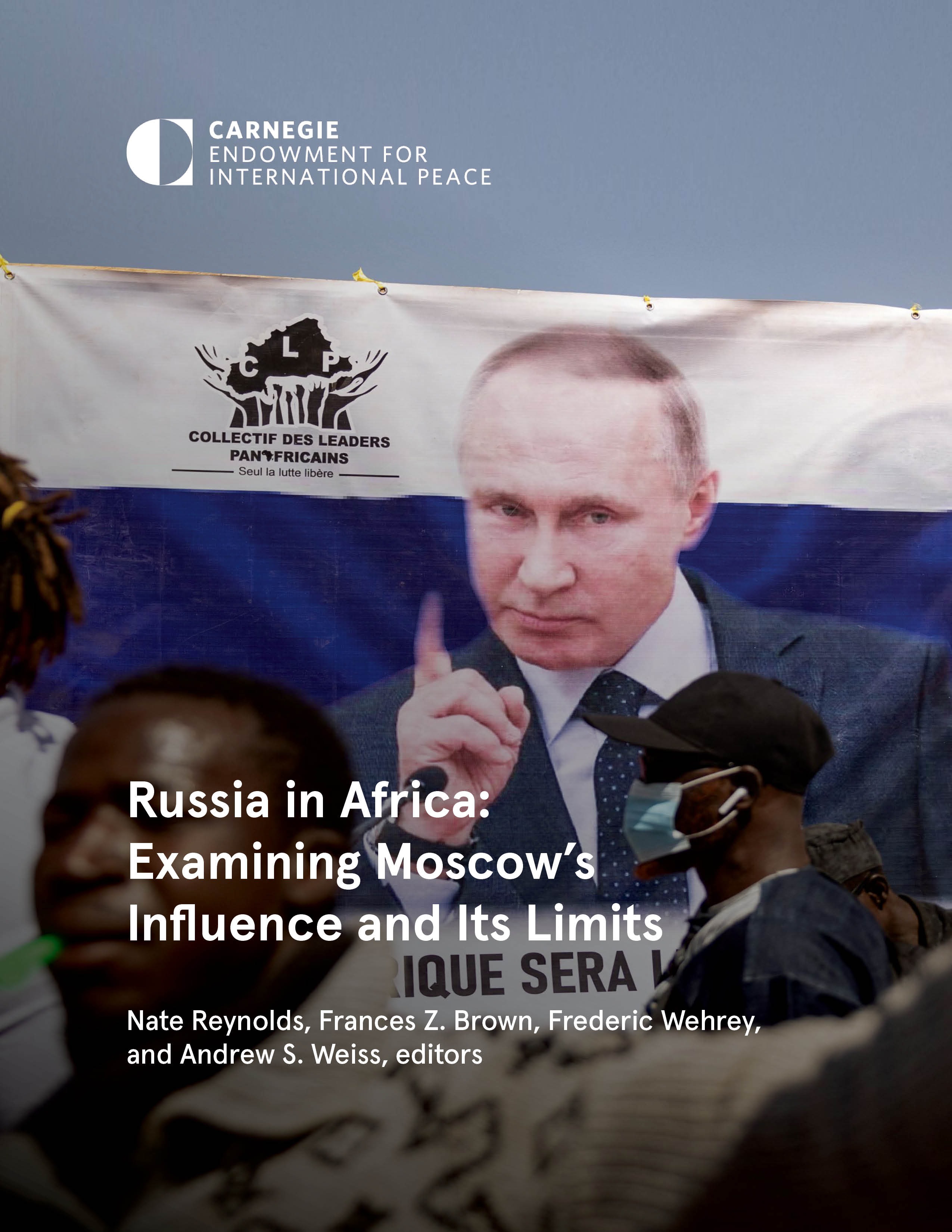Thomas Carothers, McKenzie Carrier

Source: Getty
Egypt’s Dismal Opposition: A Second Look
It is time for U.S. and other Western observers to put aside comparisons based on imagined ideals of opposition quality and behavior and more realistically and thoughtfully attempt to understand Egypt’s new political life and possible political futures.
Mention Egypt’s political opposition in any Washington foreign policy gathering and a chorus of exasperation and laments will almost certainly follow. As James Traub wrote recently, “the administration’s view of the opposition is like almost everyone’s view of the opposition—it’s feckless, lazy, and disorganized, happier sulking in Cairo than campaigning in the countryside.” Last month, Thomas Friedman cited the weakness of Egypt’s opposition as one of the two biggest surprises of the post–Arab Spring period.
This critical view comprises several main charges: Egypt’s opposition leaders are Cairo-centric elites who cannot be bothered to devote time and energy to build sustainable grassroots bases and party networks. They are a fractious, squabbling bunch who devote too much time to forming and re-forming myriad small parties rather than joining forces in a few large ones. And they fail to put forward concrete proposals to solve the country’s most glaring problems, especially the perilous economic situation. U.S. officials, analysts, and journalists repeat these criticisms over and over, often punctuating their comments with audible sighs of frustration.
This regular regretful refrain about Egypt’s opposition highlights the unfortunate fact that in the two years since the onset of political revolts in multiple Arab countries, Western analysis of these startling events has rarely been well-informed by comparative perspectives. Early on many commentators drew simplistic, largely misguided comparisons between these events and the fall of the Berlin Wall along with the ensuing democratic transitions in Central and Eastern Europe. As the hopeful Arab Spring narrative faded into rueful talk of an “Arab Winter,” the Berlin Wall analogy withered on the vine, leaving little clear comparative thinking in its place. Instead, many observers, discouraged by the many difficulties of the attempted transitions in Egypt, Libya, and Tunisia, have retreated to the old habit of believing in a negative Arab political exceptionalism—that democracy just won’t work in the Arab world.
The lack of a comparative perspective is unfortunate in multiple ways, but especially with respect to understanding political party development. A dose of comparative analysis would help relieve at least some of the uneasiness that so many U.S. observers now feel regarding Egypt’s new political life and also help avoid some policy mistakes. In a book I wrote several years ago examining the state of political parties in new or struggling democracies, Confronting the Weakest Link, I highlighted “the standard lament” that one hears about political parties in countries all over the world trying to move away from authoritarian rule:
Parties are corrupt, self-interested organizations dominated by power-hungry elites who only pursue their own interests or those of their rich financial backers, not those of ordinary citizens.
Parties do not stand for anything; there are no real differences among them. Their ideologies are symbolic at best and their platforms vague or insubstantial.
Parties waste too much time and energy squabbling with each other over petty issues for the sake of meaningless political advantages rather than trying to solve the country’s problems in a constructive, cooperative way.
Parties only become active at election time when they come looking for your vote; the rest of the time you never hear from them.
Parties are ill-prepared for governing the country and do a bad job when they do manage to take power or gain places in the national legislature.
The woes of Egypt’s opposition parties fit this standard lament to a T. In short, they are hardly unique to Egypt. They are, in fact, one more example of a much broader pattern.
Common Causes
What causes the common deficiencies of parties in post-authoritarian settings?
There are multiple reasons most newly emerging parties lack a grassroots organizational network or base. Grassroots organizing is particularly difficult in post-authoritarian contexts. Citizens who have lived through decades of repressive rule are usually suspicious of any and all political parties, viewing them in light of their negative experiences with whatever dominant party ruled previously. Even under the best of circumstances building an extensive local party structure usually takes many years. Yet parties springing up after the collapse of authoritarian rule are under pressure to compete and succeed in elections very quickly. Doing poorly in the early transitional elections usually represents a death sentence for new parties. Thus they naturally focus on the quickest routes to becoming widely known, above all appearances in the national media, especially on television, and, these days, outreach through social media.
Rapid grassroots organizing is problematic even when significant popular mobilization is responsible for the authoritarian ouster. The people who burst out on the street and help chase away the dictator are often unable to translate their energy and apparent power into organized political action. This was the case in Indonesia with the young people who took to the streets to help drive out Suharto in 1998 and in Romania when thousands risked their lives in street protests against Ceauşescu in December 1989. What for many Egyptians and observers of Egypt has been a considerable puzzle in the last two years—the failure of the remarkable January 2011 Tahrir Square protests to coalesce into an effective, organized post-Mubarak political force—is in fact a familiar syndrome.
More generally, the basic idea that grassroots organizational structures are crucial to parties’ success does not necessarily hold true in today’s world of heightened individualism, media saturation, and technological changes affecting the nature of political participation. Political parties in some of the more stable, well-established democracies, like Germany and Sweden, do maintain coherent grassroots organizational bases that were built up decades ago during the heyday of mass-based political parties. Yet in a growing number of democracies, political parties have become less rooted in local organizational structures and more driven by personalistic leadership from the top. They are focused on national media and online outreach rather than grassroots campaigning. It is not at all clear that parties in most democracies, young or old, will ever return to the idealized model of strong, stable grassroots-based organizations that Western observers insist is the expected norm for Egyptian parties.
This of course does not mean that Egypt’s opposition activists should ignore the grassroots. In varying degrees, the opposition may be guilty of elitism and a tendency to neglect direct contact with ordinary citizens. But this criticism should not be pressed without some consideration of the new realities of party organization around the world.
Party proliferation and fractiousness—the mushrooming of dozens of tiny parties, with frequent breakups and mergers, and constant infighting among party leaders—is natural after sudden political openings. With newly opened political space and real political power suddenly up for electoral grabs, political entrepreneurs rush to compete. Parties are their vehicles for doing so. These political entrepreneurs, invariably highly ambitious, headstrong individuals, have little initial inclination to subsume their surging aspirations into larger collective enterprises. They have to go through a period of testing their ambitions against local political realities before they begin to evolve toward more cooperative modes of action.
The new parties are thus usually hurried, top-down creations rather than slowly nurtured representative organizations evolving from the bottom up. Fractiousness and infighting are normal, albeit irritating, elements of party development rather than signs of fundamental dysfunction. And the process of winnowing down is often protracted. In Croatia for example, which has held reasonably free and fair elections for more than ten years, 116 parties were registered to participate in the last parliamentary election in 2011 and twelve made it into the parliament.
With regard to the tendency of parties in post-authoritarian countries not to put forward concrete policy proposals, the problem is sometimes just a lack of basic organizational capacity. But something deeper is often at work. Because of the exigencies of the global international financial system, governments in many post-authoritarian countries have narrowly bounded economic policy choices available to them. For the most part, austerity is the order of the day, especially when they’re trying to overcome the bad practices of past crony capitalism, as in Egypt. As Bulgarian political scientist Ivan Krastev has insightfully noted, citizens in many struggling democracies end up getting the same basic economic policies no matter whom they elect. This fact undercuts the incentive for parties to expend much effort elaborating policy alternatives (and for citizens to vote).
Moreover, not only are the policy choices usually quite limited, they are rarely very appealing to most citizens, further discouraging parties from dwelling on programmatic specifics. In the case of Egypt, this clearly affects not just the opposition parties but the Muslim Brotherhood’s Freedom and Justice Party as well, which has shown little public policy coherence after taking power.
As with the issue of grassroots organizing, this is not something limited to post-authoritarian contexts. In last year’s U.S. presidential election, neither major party—despite having access to enormous resources and the capacity to elaborate on policy platforms—offered a serious, credible plan to tackle the central financial challenges facing the country, that is, how to overcome the country’s budget woes. They failed to do so because they judged that any honest plan would be too painful for many voters and cost them more votes than they would likely gain. If U.S. political parties are afraid to put forward coherent economic plans, why is it so surprising that Egyptian policymakers—in a country facing far more problematic economic fundamentals—are reluctant to do so?
Ease Up on the Opposition
Bearing these comparative realities in mind, U.S. and other outside observers should ease up on their ritual lambasting of the Egyptian opposition. Harping on the opposition’s shortcomings as though it is somehow a uniquely deficient collection of individuals and groups is analytically ill-informed. Observers should instead proceed from the basic insight that the weaknesses of Egypt’s opposition parties (and to some extent of the Muslim Brotherhood’s Freedom and Justice Party) are thoroughly typical of parties in post-authoritarian contexts.
In fact, the Egyptian opposition does not look so bad compared to the political opposition forces in other places at similar historical moments, such as Romania’s famously feckless opposition parties of the early post-Ceauşescu years, Serbia’s notoriously fractious opposition parties of the late 1990s, and Argentina’s political opposition for at least the last ten years. It includes several politicians of genuine stature, such as Amr Moussa and Mohamed ElBaradei, and others less well-known but of real political energy and smarts. Cooperation among many of the opposition parties is growing rather than diminishing. Last November’s formation of the National Salvation Front, an alliance of opposition parties, was a valuable step in this regard, even if it falls apart in the run-up to the parliamentary election slated for later this year. Some opposition figures and parties do have constituencies beyond Cairo and are making efforts to build organizational structures in diverse parts of the country.
The opposition parties may not have an adequate set of proposed political programs to meet Egypt’s many challenges, yet neither are they completely bereft on the policy front. When the parliament met in the first half of last year, some of the opposition parties did engage in meaningful reform efforts within various parliamentary committees, such as the human rights committee. And overall the opposition evinces a relatively low degree of demagogy or reckless populism, especially in comparison to various political movements or parties in South Asia, South America, southern Europe, and other parts of the world.
What’s more, no matter how weak new and incapable opposition parties often appear in the early years of political transitions, some of them (though certainly not all, as Argentina demonstrates) do manage over time to get stronger and win elections. In the early 1990s, Romania’s opposition parties appeared simply hopeless compared to the well-organized, well-financed National Salvation Front that quickly assumed power after Ceauşescu’s fall and won over 85 percent of the vote in the country’s first presidential election. Yet in the second half of the decade the opposition won national elections. Supporters of Serbia’s opposition in the late 1990s despaired at times that they would never be able to get their act together, so gripped were they by rivalries and a paralyzing sense of victimization. Much sooner than anyone expected, they were running the country. Parties that are initially very weak do not necessarily cure their major institutional defects quickly, but many do learn to campaign effectively and discard less capable leaders for more capable ones. Ordinary citizens also gradually get to know them better.
The Brotherhood’s strong grassroots network and relative leadership coherence may enable it to become a long-ruling dominant force in post-Mubarak Egypt. Yet in poor countries with few natural resources, like Egypt, whichever political group or party first gains power after the collapse of the dictator inherits the daunting problem of satisfying unrealistically high expectations of citizens for rapid and substantial improvements in their daily lot. Some post-authoritarian countries do settle into dominant-party rule for sustained time periods; yet just as many experience frequent alternations of power as increasingly frustrated voters try one option after another, including parties that initially seemed marginal.
Overly harsh views of the Egyptian opposition—combined with a lack of recognition that many once-weak opposition actors in countries emerging from authoritarian rule have gone on to win elections—fuel the unhelpful idea that the Muslim Brotherhood is the only political force likely to hold power in Egypt for the foreseeable future. And that idea in turn encourages the problematic belief evident in U.S. policy in the past year that no alternative to the Brotherhood is likely to be viable for many years and the resultant tendency to downplay the Brotherhood’s significant political flaws.
The United States and other Western powers should not make it their business to actively support the opposition. But they should at least approach Egypt’s new political landscape with an open mind, informed by experiences from elsewhere.
Listening to U.S. officials and political analysts pillory the Egyptian opposition, it is hard not to wonder what gives American observers so much judgmental self-confidence. The United States has more than two-hundred years of democratic history, the finest institutions of higher education in the world, and one of the highest standards of living, Yet, in last year’s U.S. presidential elections, the country produced a slate of political opposition figures that as a group did not compare favorably to Egypt’s major opposition leaders in intelligence, integrity, or capability.
It is time for U.S. and other Western observers to put aside comparisons based on imagined ideals of opposition quality and behavior. Instead, they must more realistically and thoughtfully attempt to understand Egypt’s new political life and possible political futures.
About the Author

Harvey V. Fineberg Chair for Democracy Studies; Director, Democracy, Conflict, and Governance Program
Thomas Carothers, director of the Carnegie Endowment for International Peace’s Democracy, Conflict, and Governance Program, is a leading expert on comparative democratization and international support for democracy.
- The Trump Administration’s Tangled Talk About Democracy AbroadArticle
- The Startling Reversal of U.S. Global Anti-Corruption PolicyArticle
McKenzie Carrier, Thomas Carothers
Recent Work
Carnegie does not take institutional positions on public policy issues; the views represented herein are those of the author(s) and do not necessarily reflect the views of Carnegie, its staff, or its trustees.
More Work from Carnegie Endowment for International Peace
- The Kremlin Is Destroying Its Own System of Coerced VotingCommentary
The use of technology to mobilize Russians to vote—a system tied to the relative material well-being of the electorate, its high dependence on the state, and a far-reaching system of digital control—is breaking down.
Andrey Pertsev
- Indian Americans Still Lean Left. Just Not as Reliably.Commentary
New data from the 2026 Indian American Attitudes Survey show that Democratic support has not fully rebounded from 2020.
- +1
Sumitra Badrinathan, Devesh Kapur, Andy Robaina, …
- Civil Society Restrictions in North Africa: The Impact on Climate-Focused Civil Society OrganizationsArticle
For climate-focused civil society in countries like Morocco, Algeria, and Tunisia to be most effective, organizations should work together to develop networks that extend their reach beyond their local area and connect across borders to share best practices and amplify each other’s work.
Sarah Yerkes
- When Football Is More Than FootballCommentary
The recent African Cup of Nations tournament in Morocco touched on issues that largely transcended the sport.
Issam Kayssi, Yasmine Zarhloule
- Russia in Africa: Examining Moscow’s Influence and Its LimitsResearch
As Moscow looks for opportunities to build inroads on the continent, governments in West and Southern Africa are identifying new ways to promote their goals—and facing new risks.
- +1
Nate Reynolds, ed., Frances Z. Brown, ed., Frederic Wehrey, ed., …














